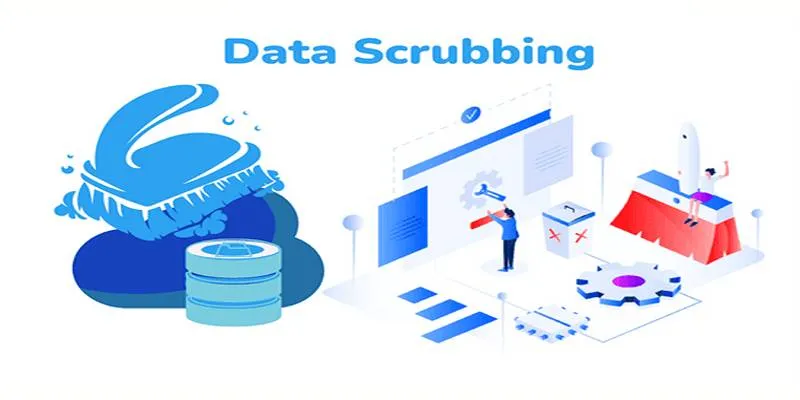Artificial Intelligence (AI) is revolutionizing the way businesses handle their financial management. Traditionally, accounting tasks were labor- intensive, manual, and prone to errors. Today, AI in accounting enables the automation of these transactions, minimizes mistakes, and enhances overall cash flow management.
This transformation not only boosts accountants’ efficiency but also aids companies in making more informed financial decisions. From invoice processing to forecasting future cash flows, AI is proving to be an invaluable asset for businesses of all sizes.
The Role of AI in Modern Accounting
AI in accounting involves the use of software tools that leverage machine learning, automation, and data analysis to perform tasks traditionally requiring human input. These tools can read data, discern financial patterns, and even predict future financial trends.
This technology empowers accounting teams to save time, enhance speed, and gain a clearer understanding of the business’s financial health. By utilizing AI, companies can eliminate repetitive data entry tasks and focus more on analyzing financial outcomes.
Automating Transactions: A Game-Changer for Businesses
One of the most significant ways AI is assisting accounting teams is through automating financial transactions. Instead of manually entering payments, matching receipts, or creating invoices, AI performs these tasks automatically and with greater precision. This not only accelerates accounting processes but also minimizes the risk of human error. Automated transactions ensure data accuracy, timeliness, and ease of tracking.
Key Accounting Tasks AI Can Automate Include:
- Reading and entering invoice data
- Matching payments with bank records
- Tracking expenses from uploaded receipts
- Categorizing transactions by account type
- Sending automatic payment reminders to clients
- Reconciling accounts with minimal human input
These time-saving features enable finance departments to concentrate on more strategic tasks, such as budgeting and planning.
How AI Improves Cash Flow Visibility

Effective cash flow management is crucial for every business. Without understanding the inflow and outflow of funds, companies can quickly face financial challenges. AI enhances cash flow visibility by providing real-time insights. Through continuous data monitoring and predictive analytics, AI tools reveal spending patterns and expected revenue. This assists businesses in making swift and informed financial decisions.
Benefits of AI for Cash Flow Management:
- Real-time updates on cash positions
- Notifications about late or missed payments
- Enhanced understanding of income and expense patterns
- Forecasts of future cash needs or surpluses
- Accelerated month-end and year-end financial reporting
With accurate and timely insights, companies can avert cash shortages, improve budgeting, and plan investments with greater confidence.
Cash Flow Forecasting Made Easier with AI
AI not only assists with current cash tracking but also supports future forecasting. By analyzing past financial data, seasonal trends, and customer behavior, AI systems can predict upcoming income and expenses.
This predictive capability is incredibly beneficial for planning and decision- making. Businesses can prepare for slow periods, adjust pricing, or delay certain expenses when they have foresight into financial trends. Forecasting also helps companies avoid last-minute loans or credit issues by enabling proactive financial planning.
AI Tools Commonly Used in Accounting
Numerous tools today utilize AI to aid businesses in managing their finances. These platforms often feature built-in automation, analytics, and secure data storage.
Popular AI-Powered Accounting Tools Include:
- QuickBooks : Offers smart suggestions for categorizing transactions and automating tax preparation.
- Xero : Automatically matches bank transactions and provides cash flow reports.
- FreshBooks : Sends automatic invoices and reminders while tracking income and expenses.
- Vic.ai : Specializes in automating accounts payable and reducing human review time.
Each of these tools reduces manual effort and provides insights that extend beyond basic bookkeeping.
Real-World Impact of AI in Accounting
For small to medium-sized businesses, AI in accounting translates to fewer errors, faster processes, and better financial control. For larger companies, it offers scalability and more efficient reporting. By alleviating the burden of repetitive tasks, finance teams can dedicate their time to data analysis, supporting growth strategies, and aiding leadership in making smarter decisions.
Common Challenges When Implementing AI
While AI offers numerous benefits, some companies may encounter challenges when adopting it.
These Include:
- Learning Curve : Team members require time to understand and adapt to new tools.
- Initial Cost : Although AI tools save money in the long run, there may be upfront costs for software and training.
- Data Privacy : Financial data must remain secure, necessitating the selection of platforms with robust security features.
- Dependence on Technology : System crashes or malfunctions can temporarily slow down business operations.
Despite these concerns, most businesses find that the long-term benefits outweigh the initial challenges.
Best Practices for Using AI in Accounting

To maximize the advantages of AI in accounting, businesses should follow a few best practices:
- Start with Clear Goals : Identify areas where automation can have the most significant impact, such as invoice processing or bank reconciliation.
- Train the Team : Ensure everyone understands how to use the software effectively.
- Choose Secure Tools : Prioritize platforms with strong data protection and encryption.
- Review Regularly : Continuously monitor the tool’s performance and seek opportunities to improve or expand automation.
These practices help ensure a smooth transition and long-term success with AI tools.
Conclusion
AI is transforming the accounting landscape. From automating daily transactions to offering precise cash flow forecasts, this technology streamlines accounting processes, making them faster, easier, and more effective. Businesses of all sizes can benefit from AI tools to enhance accuracy, reduce manual labor, and strengthen financial planning. While initial challenges may arise, the long-term advantages—such as improved cash flow visibility and smarter decision-making—make AI a valuable investment for any organization seeking to modernize its accounting processes.
 zfn9
zfn9






















